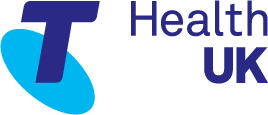Creating a truly integrated platform across the health ecosystem is essential to improve data quality and access to screening information, helping to maximise participation in lifesaving cancer screening programmes, writes Professor Dorota Gertig
Early diagnosis is at the heart of the NHS long-term plan for cancer care with a target of three quarters of cancer patients to be diagnosed at stages 1 and 2 by 2028. To achieve this, the NHS recently undertook a consultation to inform the UK’s 10-year cancer plan. The cancer plan aims to draw on the latest technologies and the smartest use of data to not only increase early cancer diagnosis, but to do so in an equitable way.
Sponsored by 
According to Cancer Research UK there are 20,000 more cancer cases a year in the most deprived areas of the country and these cases have an increased risk of a poor outcome. The charity suggests this is due to people from disadvantaged communities being less aware of cancer symptoms and therefore more likely to be diagnosed at a later stage when there are fewer treatment options. Its data suggests they are 50 per cent more likely to be diagnosed through emergency routes like accident and emergency and the NHS wants to tackle this disparity.
In Australia, there are similar health equity issues, but in addition to disadvantaged communities there is also the challenge of reaching remote and indigenous populations. Despite this, the introduction of a National Cancer Screening Register, is assisting Australia to become the first country in the world to eliminate cervical cancer by 2035 and save over 80,000 lives from bowel cancer by 2040.
End-to-end operations of the cancer screening programmes are supported via a national electronic infrastructure which collects, stores, analyses, and reports screening programme data, which has been designed for the inclusion of future screening programmes.
Telstra Health is playing a pivotal role in helping Australia meet these targets. In 2016, the Australian Department of Health commissioned Telstra Health to develop and operate the NCSR to support a renewed National Cervical Screening Program and the expansion of a National Bowel Cancer Screening Program. The key drivers for the creation of this national digital platform were to support these initiatives, increase efficiencies through integration and provide an improved digital experience for participants and health care providers. Creating a truly integrated platform across the health ecosystem is essential to improve data quality and therefore access to screening information which can help to maximise participation in lifesaving cancer screening programmes.
To meet the key drivers, Telstra Health deployed its population health platform to support both the cervical and bowel screening programmes. The platform enabled a single electronic master record to be created for eligible participants of both programmes and comprehensively links health professionals, pathology laboratories, governments, and local health authority stakeholders.
End-to-end operations of the cancer screening programmes are supported via a national electronic infrastructure which collects, stores, analyses, and reports screening programme data, which has been designed for the inclusion of future screening programmes. The NCSR encourages participation in the programmes by identifying eligible people and issuing invitations and reminders to screen. It has been connected to Australia’s Medicare database to determine under-screened and never-screened individuals and enables reminders to screen to be issued appropriately.
Integration with pathology labs means the Register receives over 99 per cent of all results electronically, so participant records and pathways are updated instantaneously. Each eligible participant record is accessible by healthcare providers via their integrated clinical information systems and provides real-time access to their patient’s cancer screening history. Having access to this data within their patient record can prompt health professionals to start a conversation about participating in the screening programmes and assists in facilitating appropriate and timely follow-up care
Participants of the screening programmes can also access their screening status following the creation of the Participant Portal. This provides participants with the opportunity to update their demographic details, find out when they’re due to screen, order replacement bowel test kits and take control of their health.
Integration of the NCSR across stakeholder software, such as Communicare software which supports the majority of Aboriginal Medical Services in Australia, is helping to reach target populations such as Indigenous peoples, regional and remote communities and other hard to reach communities which experience poorer health outcomes.
Telstra Health has significant capability and proven experience which can help the NHS address its own cancer challenges in England, achieve its 2028 ambition, and mitigate health inequity through its innovative use of data to inform screening processes. Its population health platforms can enable the NHS to identify participants for cancer screening, help to increase early diagnoses, making treatment more likely to be successful regardless of social or geographical factors.



























